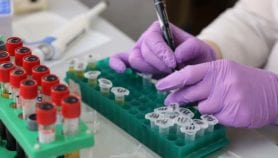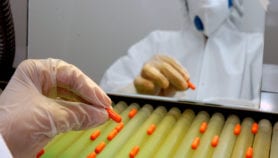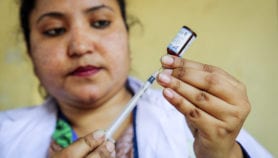By: T.V. Padma
Send to a friend
The details you provide on this page will not be used to send unsolicited email, and will not be sold to a 3rd party. See privacy policy.
[NEW DELHI] Two cases of plagiarism and data manipulation — one in a prominent government report — have led to calls for an independent ethics body in India.
The cases in question will be discussed tomorrow (28 February) by the independent watchdog the Society of Scientific Values (SSV).
In one case, on 23 February, the Journal of Biological Chemistry withdrew a paper by Gopal Kundu and colleagues at the National Centre for Cell Sciences (NCCS) amid allegations of data manipulation.
Kundu says the decision was “drastic” because the confusion is confined to only two sets of data out of 80.
An institutional enquiry committee at NCCS advised Kundu to withdraw the report, but a second independent committee headed by noted biologist and former director of the Indian Institute of Science, Govindrajan Padmanabhan, later found the allegations to be baseless.
“Both the NCCS and Padmanabhan committee cannot be right,” points out an SSV member.
Kasturi Lal Chopra, president of the SSV, says the conflict highlights why India urgently needs an independent ethics body with sufficient legal powers to enforce integrity in Indian science.
The second case concerns a report submitted on 29 December 2006 by a government-commissioned committee looking into patent law issues surrounding new chemical entities and micro-organisms.
Public health experts and NGOs allege that parts of it are plagiarised from a report by a UK-based think tank, the Intellectual Property Institute, and say it overtly favours multinational pharmaceutical companies.
In a letter submitted to the Indian government last week (19 February), the committee’s head Raghunath Mashelkar, former director general of the Council of Scientific and Industrial Research, acknowledged that the report contained “technical inaccuracies” and withdrew the report.
“It was a genuine error of oversight,” Mashelkar told SciDev.Net. “We have offered to review and resubmit the report.”
Meanwhile, Indian drug companies, health activists and left-of-centre politicians have demanded that it be completely scrapped.
“What is worrying is that contents of a UK study, that was partly funded by pharma firms, have been copied in a government report,” says Mira Shiva, board member of Health Action International Asia Pacific, a non-profit global network that campaigns on health issues.
The controversy erupted amid an ongoing court case in India in which Novartis is suing the Indian government over a patent application for an anti-cancer drug.
A specific provision in India’s patent law restricts patenting of medicines to innovations only. Novartis used, among others, the Mashelkar committee report to defend its case (see Petition supports India’s generic drugs).












